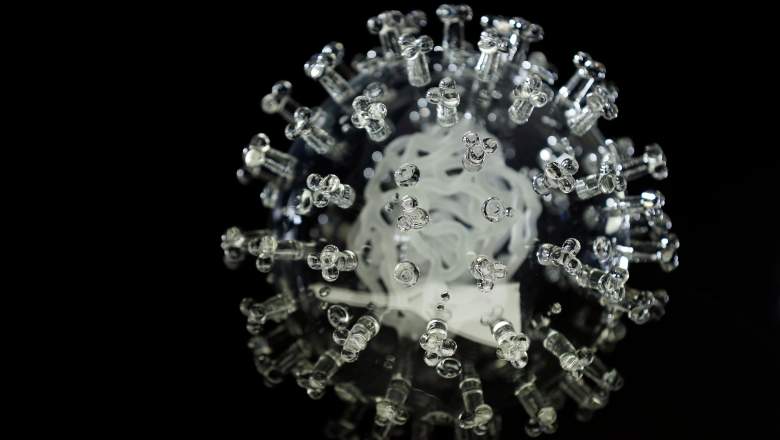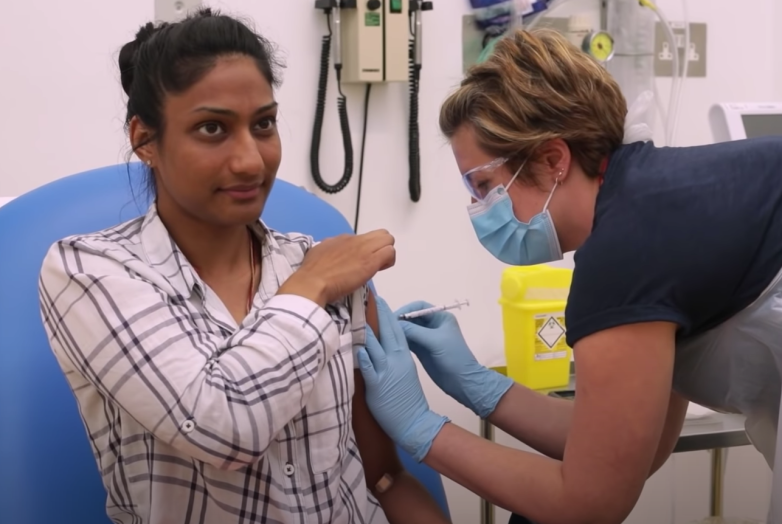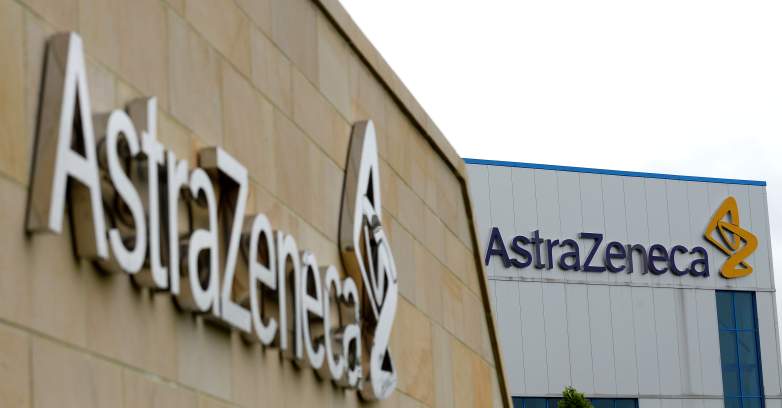
Getty
The University of Oxford’s pursuit of a viable COVID-19 vaccine continues to show promising results, as researchers discovered the vaccine they’re working on boosts antibodies that neutralize the virus, making it unable to infect human cells, according to the University of Oxford.
The results of the ongoing study were published Monday in the journal, Lancet. Oxford scientists have been working on the vaccine since January and in April they started human trials. What they’ve found so far is, “100% of participants’ blood having neutralizing activity against the coronavirus. The next step in studying the vaccine is to confirm that it can effectively protect against SARS-CoV-2 infection,” according to the University.
Adrian Hill, Director of the Jenner Institute at the University of Oxford explained, “We have two different types of immunity. One is well known — that’s making antibodies which bind to the virus and try to clear it. The other is the cellular arm, where some white blood cells called T cells can recognize a virus-infected cell, and kill that cell and the virus with it.”
Researchers Are Positive Their Vaccine Creates a ‘Robust’ Immune Response But They’re Still Working to Understand How Much Immune Response is Needed to Prevent COVID-19 Infections

University of OxfordA volunteer is injected with a potential coronavirus vaccine developed by the University of Oxford.
In May Heavy reported that Oxford’s Vaccine research was showing promise as it started human trials. Two months later, the vaccine, called ChAdOx1 nCoV-19, continues to find success after 1,077 volunteers ages 18 to 55 were injected with either the vaccine or a placebo. Of those who received the vaccine, there have been no serious health issues, according to Oxford University.
One thing they’re still trying to figure out is how much of the vaccine would be needed to effectively combat the virus. The Chief Investigator at the University of Oxford COVID-19 Vaccine Study, Andrew Pollard, said, “We saw the strongest immune response in the 10 participants who received two doses of the vaccine, indicating that this might be a good strategy for vaccination.”
Project Lead Professor Sarah Gilbert concurs.
“We know there’s an immune response to the vaccine and that’s the kind of immune response we’re looking for,” she said. “We don’t know how big that immune response needs to be. It’s both exhausting and exhilarating. We have a lot to do. There are constantly issues that we’re facing and solving and we’re able to solve them because we have such a big and such a talented team working on this and we’re very grateful to the vaccinees and the volunteers on the teams both the clinic and the lab that have worked together to deliver these results.”
Over 2 Billion Doses Of the Vaccine Are Already On Order Based On The Established Science Behind Its Development

GettyA picture shows British pharmaceutical company AstraZeneca’s manufacturing site in Macclesfield, northwest England.
One thing that has been helpful in the quick pace of this vaccine development by Oxford is that it is piggybacking on already developed vaccines using viruses that are related to COVID-19.
Gilbert, who is also a professor of vaccinology at the university, told CBS News in April when they were already working on the vaccine that she has a “high degree of confidence about this vaccine because it’s a technology I’ve used before.”
The vaccine was derived from a “genetically engineered virus that causes the common cold in chimpanzees,” according to the BBC. “This means the vaccine resembles the coronavirus and the immune system can learn how to attack it.”
The University of Oxford has partnered with the pharmaceutical company AstraZeneca to manufacture the vaccine. According to the company, they’ve committed to supplying over “two billion doses of the vaccine to the UK, US, Europe’s Inclusive Vaccines Alliance, the Coalition for Epidemic Preparedness, Gavi the Vaccine Alliance and Serum Institute of India.”
READ NEXT: Florida Asking for Plasma From Recovered COVID-19 Patients As Hospitals Fill Up